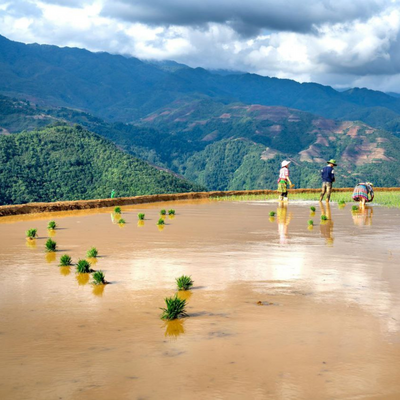Restricted Professions for Foreigners in Thailand: What You Need to Know

While Thailand Welcomes Foreign Workers, It Strictly Regulates Their Employment to Protect the National Job Market.
This includes restrictions on certain types of work for foreigners. Today, we’ll look at the professions foreigners are prohibited from pursuing in Thailand.
Legal Framework for Employment in Thailand
Foreigners in Thailand cannot engage in prohibited professions or work without a valid work permit. Employers are also not allowed to hire foreigners for restricted work or without the proper permits.
The main laws regulating foreign employment are the Foreign Business Act (FBA) and the Alien Employment Act.
The FBA categorizes activities into four lists:
- List 1: Activities reserved exclusively for Thai nationals.
- List 2: Activities permitted for foreigners under specific conditions.
- List 3: Activities open to foreign investments but requiring notification.
- List 4: Exceptions governed by international agreements.
List 1 is the most relevant in the context of prohibited professions for foreigners.
Professions Strictly Prohibited for Foreigners
- Wood carving
- Driving vehicles (except for international flights and forklifts)
- Auctioneering
- Cutting or polishing gemstones
- Hairdressing and cosmetology
- Hand weaving
- Mat weaving and making products from reed, bamboo, straw, or coconut fibers
- Hand-making mulberry paper
- Lacquerware production
- Making traditional Thai musical instruments
- Niello ware production
- Crafting gold, silver, or rose gold jewelry
- Bronze casting
- Making Thai dolls
- Crafting alms bowls for monks
- Hand-weaving silk products
- Creating Buddha statues
- Producing paper or fabric umbrellas
- Brokerage (except for international trade and investment)
- Thai massage
- Hand-rolling cigarettes
- Tour guiding and tourist services
- Street vending and hawking
- Typing Thai characters manually
- Spinning and twisting silk by hand
- Secretarial and administrative tasks
- Legal services (except for):
- Arbitration
- Representing or assisting in arbitration under foreign laws
List 2: Restricted Professions with Exceptions
Foreigners can engage in the following activities under international agreements or specific conditions:
- Audit, accounting, and bookkeeping services (exceptions: internal audits or work under international agreements).
- Civil construction (exceptions for specialists registered under ASEAN MRA agreements).
- Architectural services (exceptions for architects registered under ASEAN MRA agreements).
List 3: Exceptions for Skilled Workers
Foreigners are permitted to work in these professions if they perform skilled or semi-skilled labor:
- Agriculture, animal husbandry, forestry, and fishing
- Construction, bricklaying, and carpentry
- Mattress and quilt manufacturing
- Blacksmithing
- Footwear and hat manufacturing
- Garment sewing
- Ceramic production
List 4: International Treaty Exceptions
Foreigners can engage in the following activities under agreements between the Thai government and other countries:
- Physical labor
- Selling goods in shops or markets
Conclusion
Thailand’s labor laws clearly regulate foreign employment by categorizing professions based on national interests. However, exceptions and international agreements create opportunities for highly skilled professionals and investors. When planning to work in Thailand, it is essential to consider these restrictions and seek legal advice to avoid violations and successfully adapt to local conditions.





